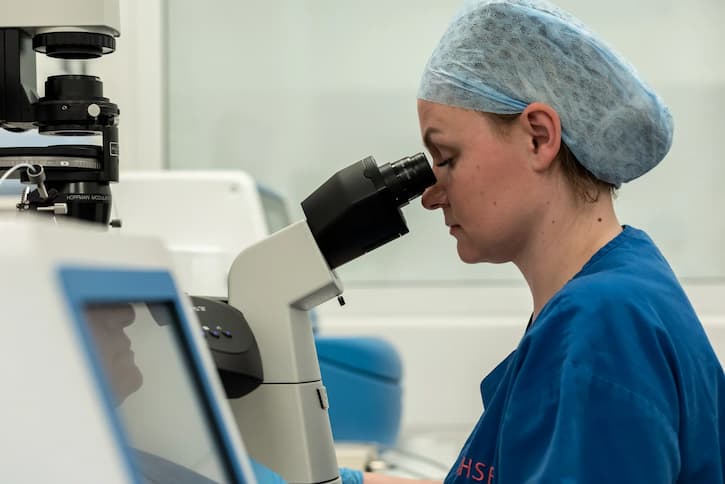Prepare for your next cycle with the EMMA test
The EMMA or Endometrial Microbiome Metagenomic Analysis test helps to evaluate the lining of your womb at a micro-biological level.
Introduction
Is EMMA right for me?
There are lots of factors that must be right for an embryo to implant successfully in your uterus – and one of them is the microbial environment. It’s one of the reasons why an IVF or frozen embryo transfer (FET) cycle may have failed, despite having good quality embryos. If this happens, we may recommend having an EMMA test. It can tell us about any abnormalities that might be causing your implantation failures or miscarriages, so we can correct it before your next cycle.
Who’s it for
You might want to use the EMMA test if…
- You’ve experienced repeated implantation failure with good quality embryos
- You’ve experienced repeated miscarriages
- You want to maximise implantation success on your first cycle
- You’re undergoing IVF or frozen embryo transfer (FET)
Statistics at Harley Street
Our pregnancy rate for women over 37 is more than double the national average and we have the highest pregnancy rate for over 40s in the UK.

Let's Talk About What's Right for You
Book a free 15-minute consultation with our New Patient Team. We'll help you understand what's relevant to you and what to expect so you can move forward with confidence.
- Confidential
- No Obligation
- Explore Fertility Options
*Want to book a Doctor's appointment? Get in touch:





The EMMA test process and what to expect
Step 1: Talk to your doctor
We put every patient on the best possible treatment plan with the highest chance of success. As EMMA is a test we use to support other fertility treatments such as IVF, the first step will be a discussion between you and your doctor about whether it might be beneficial for you.

Step 2: A biopsy
Your EMMA test will be performed using a biopsy taken from the lining of the womb. It’s a simple procedure that can be carried out in our clinic without sedation.

Step 3: Analysis

Step 4: Treatment



“Genetics don’t make a family, but love.”
Magda


